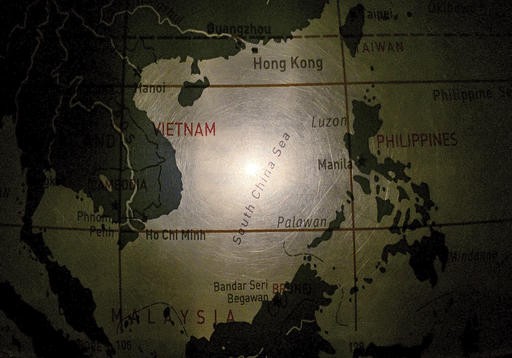Popular Reads
Top Results
Can't find what you're looking for?
View all search resultsPopular Reads
Top Results
Can't find what you're looking for?
View all search resultsWith UN court verdict, Asean can make stand on South China Sea dispute
Change text size
Gift Premium Articles
to Anyone
W
ith four members—the Philippines, Vietnam, Brunei and Malaysia—having conflicting claims with China in the South China Sea and other members leaning toward China because of economic interests, Asean faces serious divisions over the ruling to be handed down by the Permanent Court of Arbitration in The Hague on July 12.
Members of the Association of Southeast Asian Nations (Asean) could use this week’s ruling by an international court to make a stand on the South China Sea territorial disputes without hurting China.
A statement made by former law dean Raul Pangalangan months before he was elected a judge of the International Criminal Court (ICC) circulated again last Friday, as anticipation over the ruling by the arbitral tribunal on the Philippine case against China mounted.
With four members—the Philippines, Vietnam, Brunei and Malaysia—having conflicting claims with China in the South China Sea and other members leaning toward China because of economic interests, Asean faces serious divisions over the ruling to be handed down at The Hague on Tuesday.
Most legal experts expect the ruling to go against China, depriving it of a basis for its expansive claims to almost all of the South China Sea.
‘Game changer’
But Pangalangan, a trustee of the think tank Stratbase ADRi and a former publisher of the Philippine Daily Inquirer, said the Philippine case was a “game changer,” as it elevated the dispute to the level of international law.
In his early statement, Pangalangan also argued that the Philippines would have been at a disadvantage if it pursued bilateral negotiations with China in trying to resolve the territorial dispute.
‘David vs Goliath’
“In a David vs Goliath scenario, the Philippines would have been helpless; by filing the case, we have shifted it from a two-party settlement and submitted it to a third-party decision-maker on the tribunal,” Pangalangan said.
He said the Philippine challenge to China’s claim to almost all of the South China Sea also undermined the military aspect of the maritime disputes and instead “highlighted the primacy of international law.”
The Philippines has asked the arbitral tribunal to void China’s sweeping claims in the South China Sea, and demanded its right to explore resources in its exclusive economic zone, waters locally known as the West Philippine Sea, be respected.
“It (arbitration) will provide our neighbours in Asia and our allies abroad a neutral ground upon which to take a position on the issue. In other words, without states saying ‘China is right’ or ‘the Philippines is right,’ we provide even the erstwhile hesitant Asean states an opportunity to take a decision without riling China’s sensitivities,” Pangalangan said.
Joint exploration
Philippine President Rodrigo Duterte said on Thursday he expected the ruling to be in favor of the Philippines and, if it is, he was willing to talk with China about joint exploration of resources in the West Philippine Sea.
Foreign Secretary Perfecto Yasay said Duterte and Ambassador Zhao Jinhua discussed joint exploration during the Chinese envoy’s visit to the President in Malacañang on Thursday.
No preconditions
“If the Chinese, in respecting the decision of the arbitral tribunal, would like to negotiate within the context of that arbitral tribunal along with the other claimants, if at all that would be covered by the decision, to see how we can jointly use and explore the area, by all means let’s pursue that,” Yasay said at a news forum in Makati on Thursday.
Earlier, Zhou said China hoped bilateral negotiations with the Philippines could start soon.
He said there should be no preconditions for the talks, as both countries were committed to friendship and cooperation.
“Let me emphasize this, we have been talking too much about the disputes in the last six years. Let’s focus on friendship and cooperation. That’s better,” Zhou said.







